Future proofing St Michaels Marina
Almost a decade ago, Michael Morgan introduced Marina World to St Michaels Marina – a 52-berth boutique gem he owned and managed in Maryland’s Chesapeake Bay. The marina has since seen many changes, including battles against flooding, a fuel system overhaul and a recent property sale to a Miami-based marina investment group.
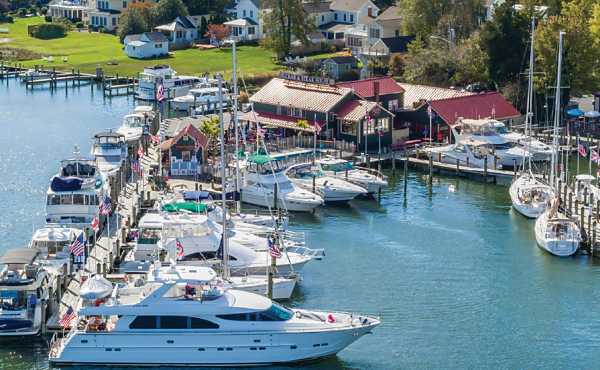
St Michaels is a popular boutique marina on Chesapeake Bay in Maryland, USA.
A: I’d like to highlight two main changes. In 2017, we completely repurposed our dock house from a standard marine store to an overwhelmingly popular, high-end apparel/accessories shop called ‘The Exclusive Shop’. It carries many first-class resort-wear lines including Peter Millar, Lululemon and KJUS. I’m very proud of the store and our customers really love it. Of course, we still carry necessity boating items, such as fuel additives, head cleaner, hoses, etc, which can be found in our ‘Marine Locker’ attached to the dock house.
Then, in 2020, we put in a completely new fuel system including electric and high-speed dispensers, tanks and pumps. We had to do this because our old tanks had “aged out” and become uninsurable. We chose to shoulder the expense of the renovation – the tanks alone costing around $25,000 each – not only to protect our own revenue stream from the fuel business, but also because we’re the only source of fuel in the harbour and other businesses would have suffered had we not gone ahead.
Q: Were there any particular challenges with the fuel project?
A: There was a considerable amount of red tape involved. The two ageing, 10,000-gallon fuel tanks were installed in 1986 and served five pumps at the marina – three diesel and two gas [petrol]. After 30 years it’s very hard to get insurance on them, so we realised we needed to upgrade them. We also wanted to move them to higher ground, as the area around the marina suffers from excessively high tides.
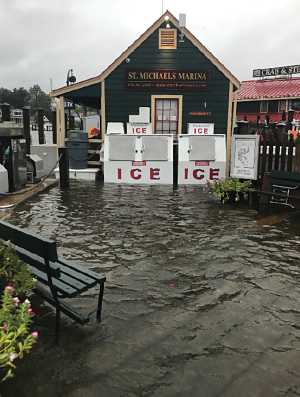
Flooding has been a problem, and addressing sea level rise is an important challenge.
The work required lots of planning and many permits but, in the end, the town was very cooperative because they did not want to become a town without fuel. Without this, the local tourist industry would have seen a drastic – if not permanent – reduction in customer traffic.
Q: What are your short- and long-term plans?
A: Our primary short-term concern in the immediate future is the amount of new competition ramping up locally and regionally. Most of our competitors on the Chesapeake Bay are planning expansions and devising aggressive new marketing strategies to which we must respond if we’re to keep pace and preserve our current lofty position in the market.
But the real concern that needs to be addressed in both the short- and long-term is the impact of sea level rise on our business. I truly believe that the most important problem that we and, by extension, all private marina owners and harbour-based businesses around the world must prepare for are the consequences of sea level rise. It seems inevitable that our docks will be underwater in the future.
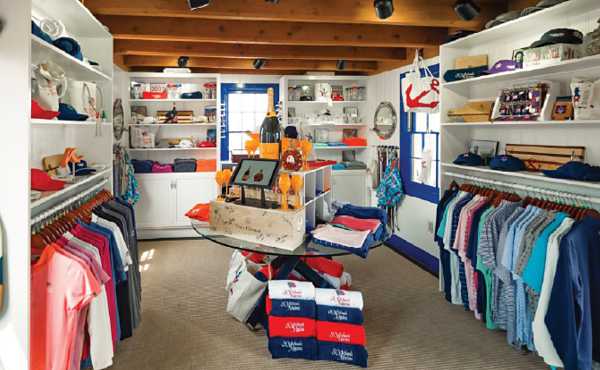
The Exclusive Shop, a new high-end store created from a former dock house, is overwhelmingly popular.
Q: Are there any funding options available?
A: It seems that grant money is only available to governments, schools, institutions and even to homeowners. However, there do not seem to be funds available to help private businesses cope with sea level rise. We need one of two things to happen if we – and our town’s tourist industry – are to survive and continue to thrive. First, we need to secure grants to defray the costs of construction and/or we need to expand our slips. By so doing, we can accommodate more boats, increase our revenue and help offset our construction costs. Expanding our slips would be ideal as it would also enable us to recoup the investment we made on the fuel tanks.
Q: Have you seen any changes in the make-up of the boats that visit you – more superyachts, more power boats?
A: I’ve noticed our visiting boats seem to have bigger beams, although I’m not sure why that is. I think it reflects a general trend in the boat manufacturing industry. Also, although we do still welcome many sailboats, since COVID we have seen an explosion of new, first-time boat owners who typically tend to buy powerboats. We still see about as many superyachts now as we have seen for years.
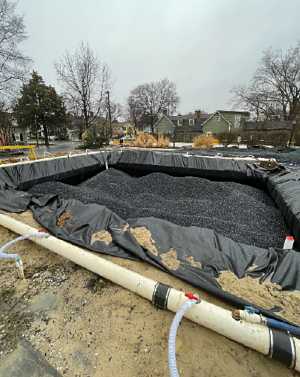
Installing new fuel tanks was a costly but essential investment.
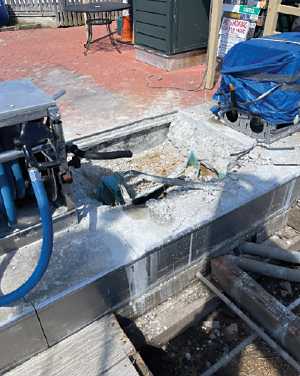
A: From what I’ve seen, customers are demanding that marinas provide more first-class service and amenities like boat washing and detailing. In my experience, it’s rare to see boat owners washing and waxing their own boat like they used to. Other amenities that they expect and that we deliver are mail receiving and delivery services, courtesy bikes and vehicles, and many more. Customers want to be ‘wowed’ and they expect to have the same experience they’d find at a top-rated luxury resort. We do everything we can to give that to them.
For example, we offer cold lavender towels, a sunglass cleaning service and complimentary water at our pool, and we give them memento photos along with handwritten thank you notes and ‘special occasion gifts’ personalised to the interests of each specific boater. The key here is to be observant and really study your customers — then over-deliver on the experience they are hoping for. I believe that cultivating and maintaining goodwill with our customers, working with each of them personally, should be the number one focus of any marina owner if they wish to succeed over the long haul.
Q: How did the business fare during COVID?
A: We did as well as could be expected. After struggling initially, we ended up doing ‘just okay’. Our saving grace was that personal boating was a natural and logical option for people suffering from “cabin fever” in a pandemic. Boating lends itself to social distancing from other boaters, and you are essentially spending your time outside! It seems that the more restless people became the more visiting boats we had.
Q: Finally, can you tell us about the recent sale of the property?
A: My father was the original owner of the property since 1982 and subsequently sold it to local group ShoreGate Partners in 2019. After they invested considerable capital expenditure on improvements, they in turn sold it to a Miami-based marina investment company in 2021. They’re now the new property owner/landlord, but I still own and operate the marina business. I’m very happy to have them as partners.

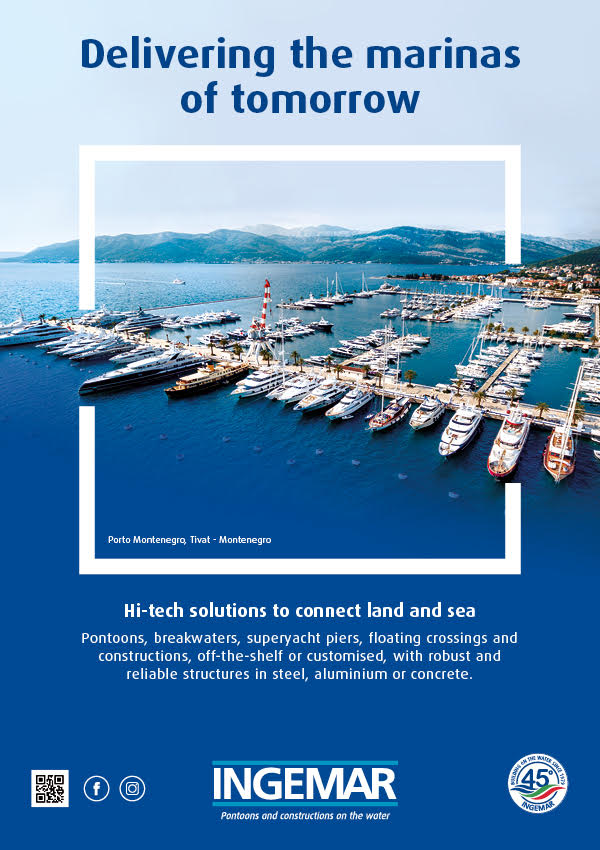
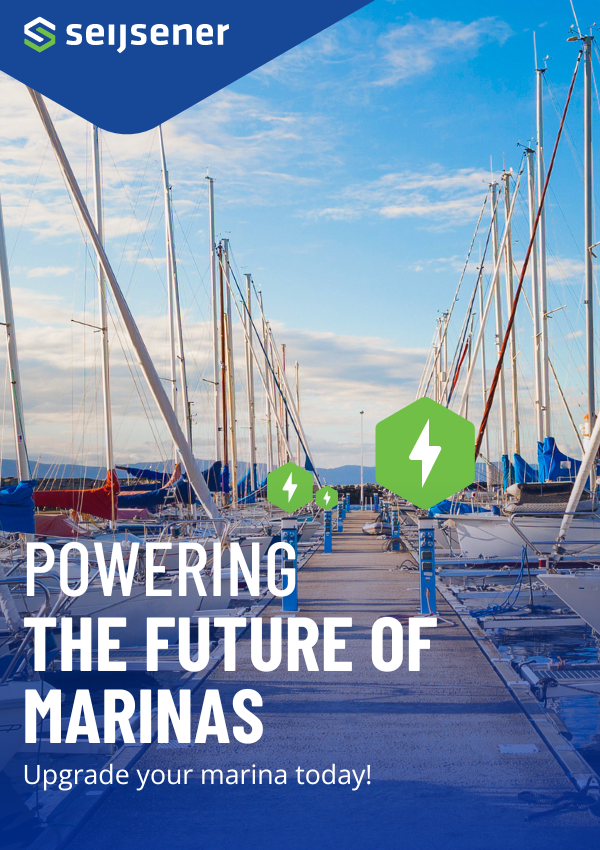
.jpg)